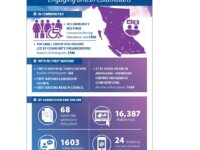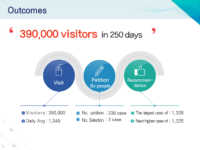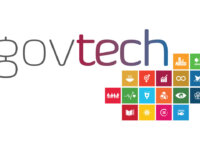Learning Together for Better Public Engagement (Learn4PE) was a pilot initiative designed to build public engagement capacity across the Government of Canada. In its first iteration, participants spent five weeks learning together in English and French, both online and by participating in live sessions with experts. While targeted towards federal public servants, registration was open to all, enabling the exchange of relevant ideas and resources.
Innovation Tag: Public Consultation
Informed Participation is a unique way to bring the public into government decision making. It gives government a method to solve complex issues with the public in a way that gives them a meaningful role in balancing competing interests. Public policy is becoming increasingly complex and trust in government is declining, so new innovative ways of engaging with citizens is needed. This method shifts engagement from obtaining buy-in to building ownership and creates more legitimate solutions.
How do we create a safer river delta while at the same time ensuring an attractive living environment? This is the question that the Dutch Directorate-General for Public Works and Water Management (Rijkswaterstaat) sought to answer through its Room for the River program. With this program, the emphasis was shifted from reinforcing dikes to creating more space for the river, with an unprecedented focus on the spatial quality of the whole river delta.
The digital economy is booming in Medellín. So is digital tax evasion. To identify potential tax evaders, the local treasury department used to detect unregistered online stores manually. Since the use of social media for economic activities has grown exponentially, the agency has now developed a bot that automatically scrapes Instagram for such stores - and officers can use their time instead to work with store owners to formalize their businesses.
Previous government-led safety inspection systems were not reflective of social needs and public interest in the foods and drugs that should be on the market.
The new system allows people not only to make policy proposals but to actively participate in food and drug inspections as well.
People are empowered to request inspection or examination of products when there is a growing public concern over the safety of the food or drug in question. The government will respond with an inspection or…
Community Connects is a pilot project that came out of the Transportation Innovation Lab. Problem/Opportunity: Cape Breton Regional Municipality (CBRM) is a region with high levels of poverty and unemployment. Innovation: Taxi service, doorstep pick-up, defined drop-off points, flat rate: $7 seat. Why innovative? In short, the approach (social innovation lab) and those that were engaged (first-voice participants).
GovTech is a Portuguese public competition that rewards innovative products and services provided by Startups and addressing at least one of the 17 Sustainable Development Goals (SDGs).
It intends to stimulate the national Startup ecosystem, by promoting a sustainable economic growth, fostering innovation and opening new economic opportunities based on the 2030 Agenda.
The use of blockchain in the voting phase opened to the public was one of the perks of this competition
Make.org est une plateforme européenne de mobilisation citoyenne autour d’actions de transformation de la société. Dans ce cadre, Make.org développe une solution digitale de consultation massive, totalement inédite, capable de faire participer autour d’une question simple d’intérêt général, plusieurs milliers de citoyens, dans plusieurs langues, et de restituer les résultats de cette consultation en ligne, de manière quasi instantanée. Cette solution est complétée des…
Case Study
Redesigning the federal homelessness program: engaging people with lived experience of homelessness
As part of the engagement process on the redesign of Canada’s homelessness program, Employment and Social Development Canada engaged directly with people with lived experience of homelessness. Dedicated tools and mechanisms were developed to ensure the meaningful participation of people with lived experience, the removal and mitigation of financial barriers to engagement and recognition of the unique expertise and knowledge of people with lived experience.
Case Study
Engaging People with Lived Experience of Poverty to Build and Implement British Columbia’s First…

In 2016, British Columbia (B.C.) had the second highest poverty rate in Canada but was the only province without a poverty reduction strategy. To inform its first strategy, a new government completed the most extensive poverty engagement to date in Canada, focusing on people with lived experience of poverty.
To address barriers, B.C. used a range of innovative engagement approaches including direct supports for participants, dedicated Indigenous engagement and funding grants to non-profits.


